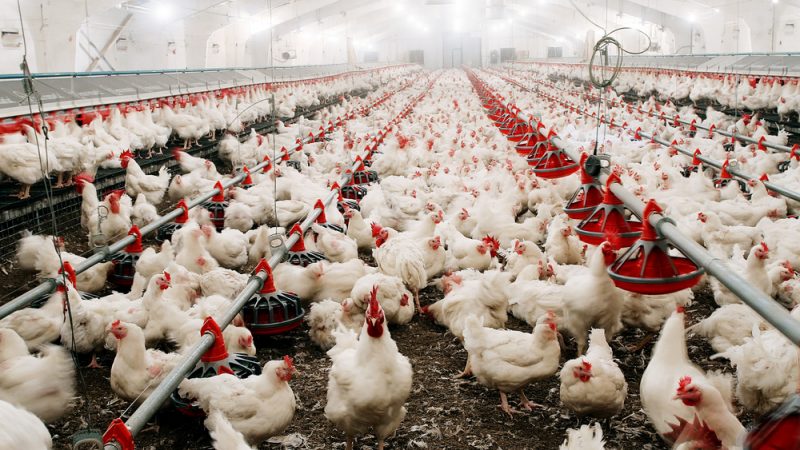The European Commission has announced new rules to harmonise the vaccination of animals against the most serious animal diseases as part of efforts to address the largest epidemic of avian flu observed in the EU so far.
Avian influenza is a highly contagious viral disease which occurs primarily in poultry and wild water birds. There are two strains of the virus; high or low pathogenic viruses, known as HPAI and LPAI, respectively.
This past year has seen Europe hit with the worst wave of avian flu on record. The latest quarterly report from the European Food Safety Agency (EFSA) reports an unprecedented number of outbreaks between October 2021 and September 2022 across 37 European countries, culminating in 50 million birds culled in affected establishments.
The rules for vaccination, announced on Monday (20 February), allow for a harmonisation of the use of vaccination in efforts to prevent or control the spread of the disease.
This will allow “safe movements of animals and products from establishments and zones where vaccination has taken place”, according to a Commission statement.
In light of the most serious outbreak in recent history in the EU, Stella Kyriakides, European Commissioner for Health and Food Safety, said that the fight against avian influenza is at the “top of our priorities”.
“These outbreaks are causing enormous damage to this agricultural sector and hamper trade,” she noted in a statement.
For AVEC, which represents Europe’s poultry meat sector, the move towards a common EU frame for vaccination is a welcome one. They explain that, considering the evolution of the virus over the past few years, it will be “more and more difficult to control HPAI without vaccination”.
However, the association warned that vaccination is “not the solution that will solve the avian influenza problem once and for all”.
“It can be part of a strategy – but many other measures must be taken as well,” AVEC secretary general Birthe Steenberg told EURACTIV.
For example, rigorous surveillance programmes to oversee the effectiveness of vaccination strategies must be put in place, but these will be “costly” for the sector.
As such, these “must be seen as measures needed for the society as a whole – so the cost will not only go to the poultry producers”, Steenberg said, adding there is also a need to look at trade with in order to avoid trade barriers as a result of vaccination against the disease.
Meanwhile, for Roxane Feller, secretary general of AnimalhealthEurope, which represents manufacturers of animal medicines, vaccines and other animal health products in Europe, a “multi-stakeholder evaluation of the possibilities for using vaccines during certain seasons to ensure better protection of poultry at risk from HPAI outbreaks is clearly needed”.
“The animal health industry is ready to contribute to vaccination campaigns if and when the need arises, provided that authorities and governments provide clear guidance with timelines that are compatible with vaccine development and manufacturing,” she added.
The new rules, which are in line with the international standards of the World Organisation for Animal Health (WOAH, formerly OIE), will now enter into force on 12 March.
[Edited by Nathalie Weatherald]
